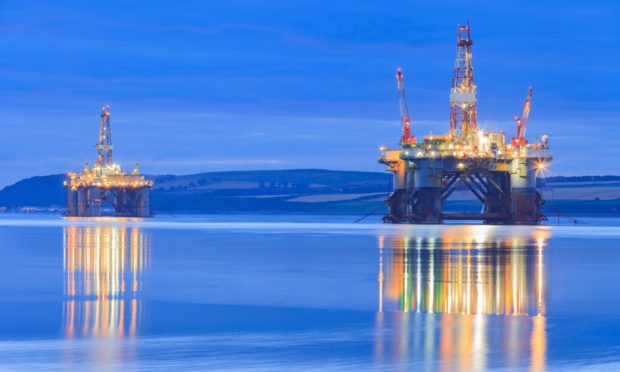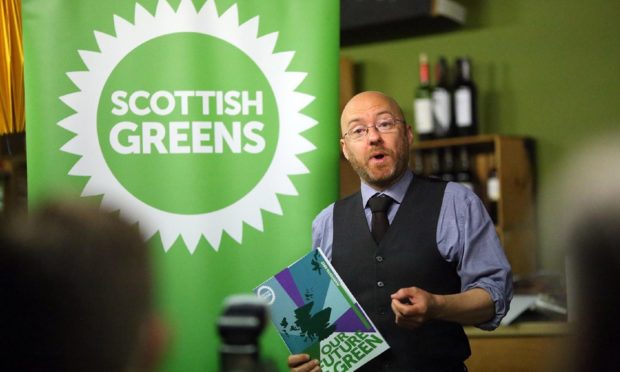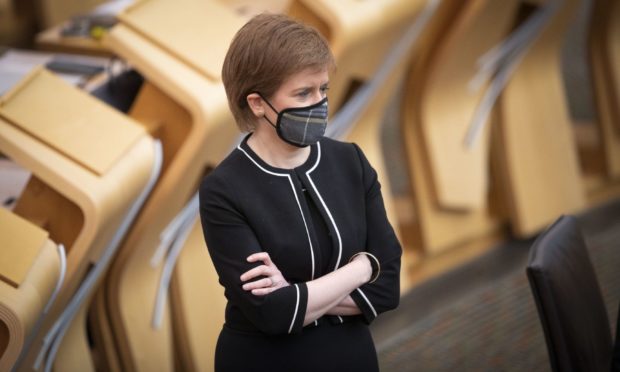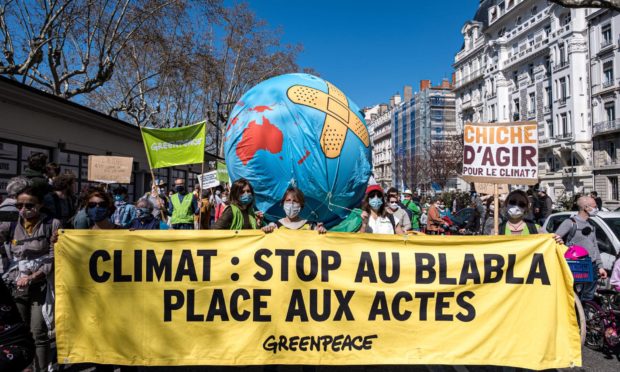Patrick Harvie says the Scottish Greens have an “aspiration” to govern but he does not expect the SNP to seek a formal coalition deal with his party.
He also suggests the stumbling blocks preventing such an alliance included the SNP’s support for North Sea oil and gas exploration, as well as dualling of roads such as the A9 between Perth and Inverness.
The two parties have worked together on recent Holyrood budgets, and a power-sharing pact with the Greens has not been ruled out by First Minister Nicola Sturgeon.
Mr Harvie’s fellow co-leader, Lorna Slater, also spoke about the prospect of a coalition, saying, in principle, the party “intend to be around the table with Cabinet positions“.
However, Mr Harvie suggests it is “realistic” to assume the SNP would seek to continue to govern alone, whether it secures a majority or not after May 6.
“We have got a strong track record of making an impact as an opposition party, and as a bigger opposition party in the next session, we would be able to have even more of an impact,” he says.
“Obviously, Greens have been in government in a number of other countries.
“You know, we have that aspiration but there are really big differences between our position and the SNP on a number of issues, other than independence.
“That includes oil and gas, investment in unsustainable transport infrastructure that makes our climate crisis worse, not better.
“And even the nature of our economy, quite often they are unwilling to challenge the vested interests, like the landowners and the blood sports industry, when we could be using Scotland’s land in a way that benefits Scotland’s people, as well as Scotland’s wildlife.”
Asked if such differences would be red lines in any future coalition talks, Mr Harvie plays down the prospect.
Given their track record of staying in minority government, there’s probably not a huge reason to expect them to do anything differently.”
“Let’s be realistic. We know the SNP are riding pretty high in the polls. Some of the polls suggest they will get a majority, some of the polls suggest they will be just short of an overall majority,” he says.
“They were just short of an overall majority in the last session of the Scottish Parliament, and they chose to say that minority government was their first preference.
“So it may be that if they are forming a government again after May they will ask another party to sit down and have talks, and I would suspect we would be willing to have the conversation.
“But given their track record of staying in minority government, there’s probably not a huge reason to expect them to do anything differently.”
‘The natural world is breaking down’
Mr Harvie was in Aberdeen on Thursday to campaign for an end to support for new North Sea exploration, followed by a trip to Inverness to discuss giving more powers to local authorities.
Quizzed on concerns about the economic impact of his party’s policy on oil and gas, he says it is “not about switching it off overnight”, but to stop looking for new reserves and, over the next decade, to embark on a “substantial reduction in extraction from existing, operational fields”, while investing in alternative industries.

Mr Harvie said: “If we are reckless with our planetary life support system, then there is no local economy, either here or anywhere else in the world, that will survive that.
We’re at a point where language like ‘climate emergency’ really needs to elicit an emergency response.”
“We’re at a point where the natural world is breaking down. The climate system is breaking down.
“We’re at a point where language like ‘climate emergency’ really needs to elicit an emergency response.
“And we’ve seen with the pandemic, when governments do treat something like an emergency, they can respond rapidly and achieve really radical changes in a very short space of time.
“It’s that scale of emergency response that is required in the face of the breakdown of our climate system.”












